Melodi
Disaster Cat
I've known about this discovery for several weeks, but the first announcements didn't have much information. For context, this find isn't at Ur, but it is from the time of Abraham (more or less). It is probably an example of places he would have had a meal in Ur or where King Gilgamesh might have snuck off for a pint. There is a popular theory that the Sumerians domesticated wheat to make beer rather than for making bread. Though now that we know even Neanderthals were cooking grains, that's unlikely; they drank so much beer it is easy to see how that theory came about. Some things about humans never change. Set up a city, and right away, you get taverns! Photos included because they are an important part of the story - Melodi
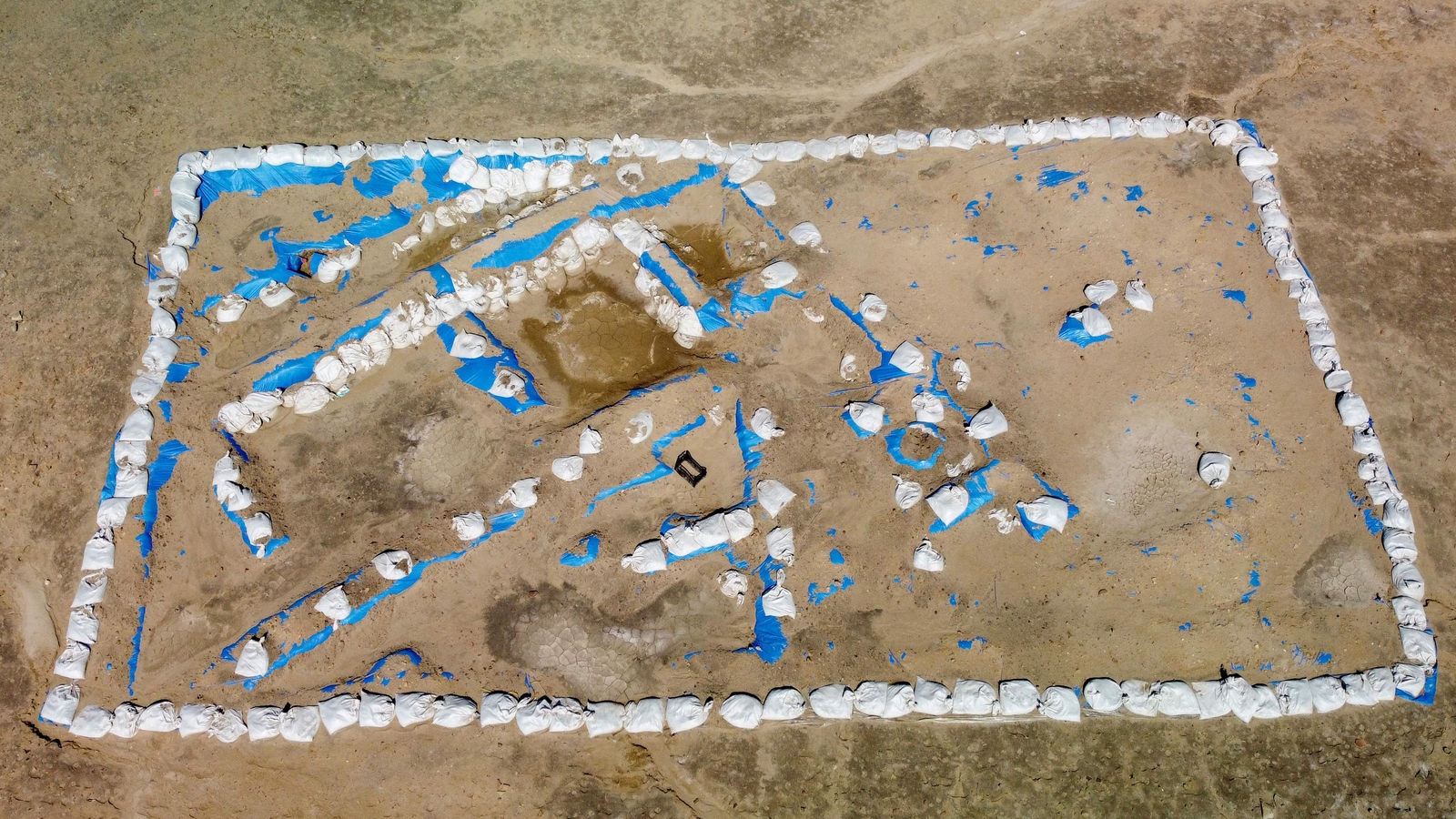
 www.rte.ie
www.rte.ie
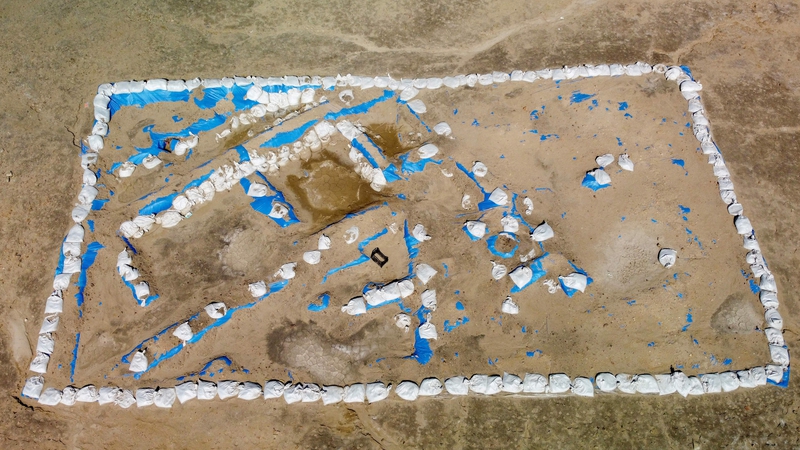
An aerial picture shows a general view of the newly-excavated site at Lagash
Archaeologists in southern Iraq have uncovered the remains of a tavern dating back nearly 5,000 years which they hope will illuminate the lives of ordinary people in the world's first cities.
The US-Italian team made the find in the ruins of ancient Lagash, northeast of the modern city of Nasiriyah, which was already known to have been one of the first urban centres of the Sumerian civilisation of ancient Iraq.
The joint team from the University of Pennsylvania and the University of Pisa discovered the remains of a primitive refrigeration system, a large oven, benches for diners and around 150 serving bowls.
Fish and animal bones were found in the bowls, alongside evidence of beer drinking, which was widespread among the Sumerians.
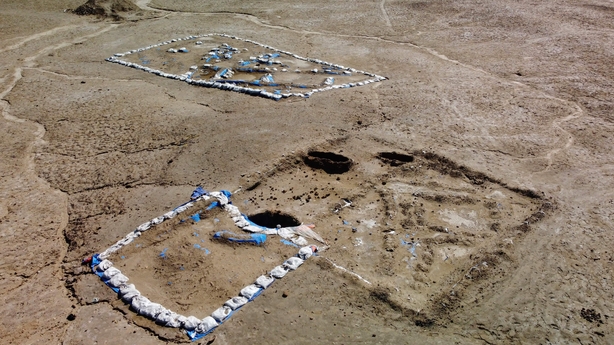
An aerial picture shows a general view of the newly-excavated site at Lagash
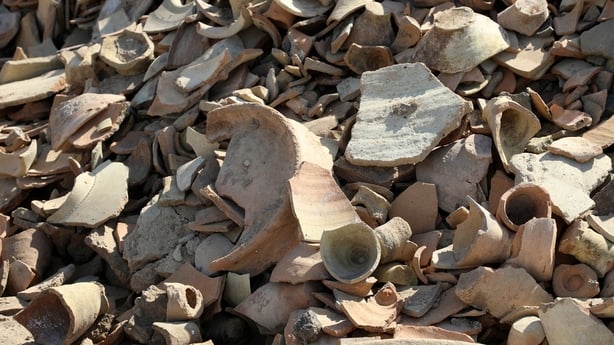
Sherd pottery fragments seen at the site
"So we've got the refrigerator, we've got the hundreds of vessels ready to be served, benches where people would sit... and behind the refrigerator is an oven that would have been used... for cooking food," project director Holly Pittman said.
"What we understand this thing to be is a place where people - regular people - could come to eat and that is not domestic," she said.
"We call it a tavern because beer is by far the most common drink, even more than water, for the Sumerians", she said, noting that in one of the temples excavated in the area "there was a beer recipe that was found on a cuneiform tablet".
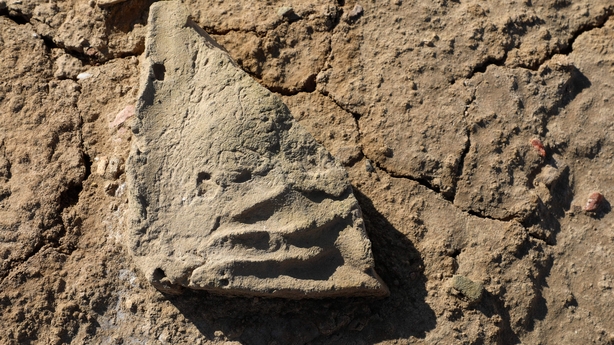
A clay tablet bearing fingerprints is seen at the site
The world's first cities developed in what is now southern Iraq, after agricultural surpluses from the domestication of the first crops allowed the emergence of new social classes not engaged directly in food production.
The Lagash area, close to the confluence of the Tigris and Euphrates rivers, was dubbed the "garden of the gods" by the ancients for its fertility and gave rise to a string of Sumerian cities dating back to the early dynastic period.
"Lagash was one of the important cities of southern Iraq," Iraqi archaeologist Baker Azab Wali said, after working with the US-Italian team on the site.
"Its inhabitants depended on agriculture, livestock, fishing, but also on the exchange of goods," he said.
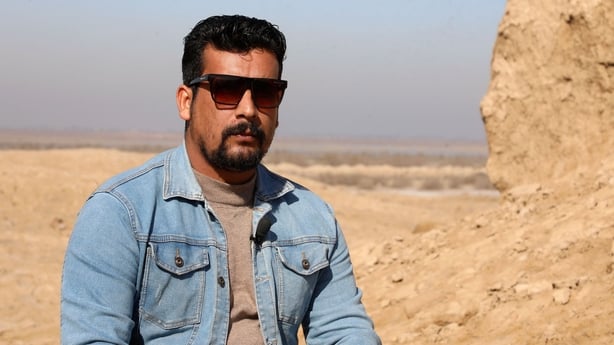
Iraqi archaeologist Baqer Azab Wali said Lagash was one of the important cities of southern Iraq
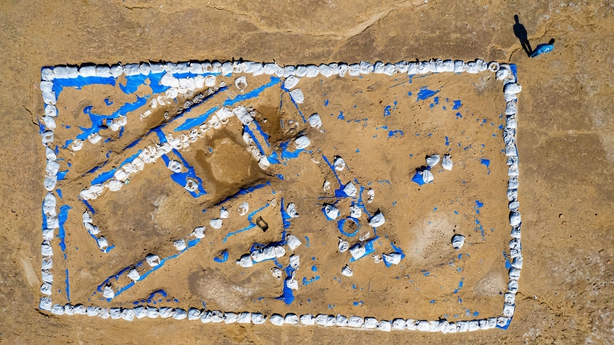
Ms Pittman said the team was eager to learn more about the occupations of the people who used the tavern in its heyday in around 2700 BC to throw new light on the social structure of the first cities.
Detailed analysis would need to be carried out on the samples taken during the excavations the team completed in November.
"There is so much that we do not know about this early period of the emergence of cities and that is what we are investigating," she said.
"We hope to be able to characterise the neighbourhoods and the kinds of occupation... of the people that lived in this big city who were not the elite," she added.
"Most of the work done at the other sites focuses on kings and priests. And that is all very important but the regular people are also important."

5,000-year-old tavern uncovered in southern Iraq
Archaeologists in southern Iraq have uncovered the remains of a tavern dating back nearly 5,000 years which they hope will illuminate the lives of ordinary people in the world's first cities.
5,000-year-old tavern uncovered after dig in southern Iraq
Updated / Wednesday, 15 Feb 2023 06:53
An aerial picture shows a general view of the newly-excavated site at Lagash
Archaeologists in southern Iraq have uncovered the remains of a tavern dating back nearly 5,000 years which they hope will illuminate the lives of ordinary people in the world's first cities.
The US-Italian team made the find in the ruins of ancient Lagash, northeast of the modern city of Nasiriyah, which was already known to have been one of the first urban centres of the Sumerian civilisation of ancient Iraq.
The joint team from the University of Pennsylvania and the University of Pisa discovered the remains of a primitive refrigeration system, a large oven, benches for diners and around 150 serving bowls.
Fish and animal bones were found in the bowls, alongside evidence of beer drinking, which was widespread among the Sumerians.

An aerial picture shows a general view of the newly-excavated site at Lagash

Sherd pottery fragments seen at the site
"So we've got the refrigerator, we've got the hundreds of vessels ready to be served, benches where people would sit... and behind the refrigerator is an oven that would have been used... for cooking food," project director Holly Pittman said.
"What we understand this thing to be is a place where people - regular people - could come to eat and that is not domestic," she said.
"We call it a tavern because beer is by far the most common drink, even more than water, for the Sumerians", she said, noting that in one of the temples excavated in the area "there was a beer recipe that was found on a cuneiform tablet".

A clay tablet bearing fingerprints is seen at the site
The world's first cities developed in what is now southern Iraq, after agricultural surpluses from the domestication of the first crops allowed the emergence of new social classes not engaged directly in food production.
The Lagash area, close to the confluence of the Tigris and Euphrates rivers, was dubbed the "garden of the gods" by the ancients for its fertility and gave rise to a string of Sumerian cities dating back to the early dynastic period.
"Lagash was one of the important cities of southern Iraq," Iraqi archaeologist Baker Azab Wali said, after working with the US-Italian team on the site.
"Its inhabitants depended on agriculture, livestock, fishing, but also on the exchange of goods," he said.

Iraqi archaeologist Baqer Azab Wali said Lagash was one of the important cities of southern Iraq

Ms Pittman said the team was eager to learn more about the occupations of the people who used the tavern in its heyday in around 2700 BC to throw new light on the social structure of the first cities.
Detailed analysis would need to be carried out on the samples taken during the excavations the team completed in November.
"There is so much that we do not know about this early period of the emergence of cities and that is what we are investigating," she said.
"We hope to be able to characterise the neighbourhoods and the kinds of occupation... of the people that lived in this big city who were not the elite," she added.
"Most of the work done at the other sites focuses on kings and priests. And that is all very important but the regular people are also important."









